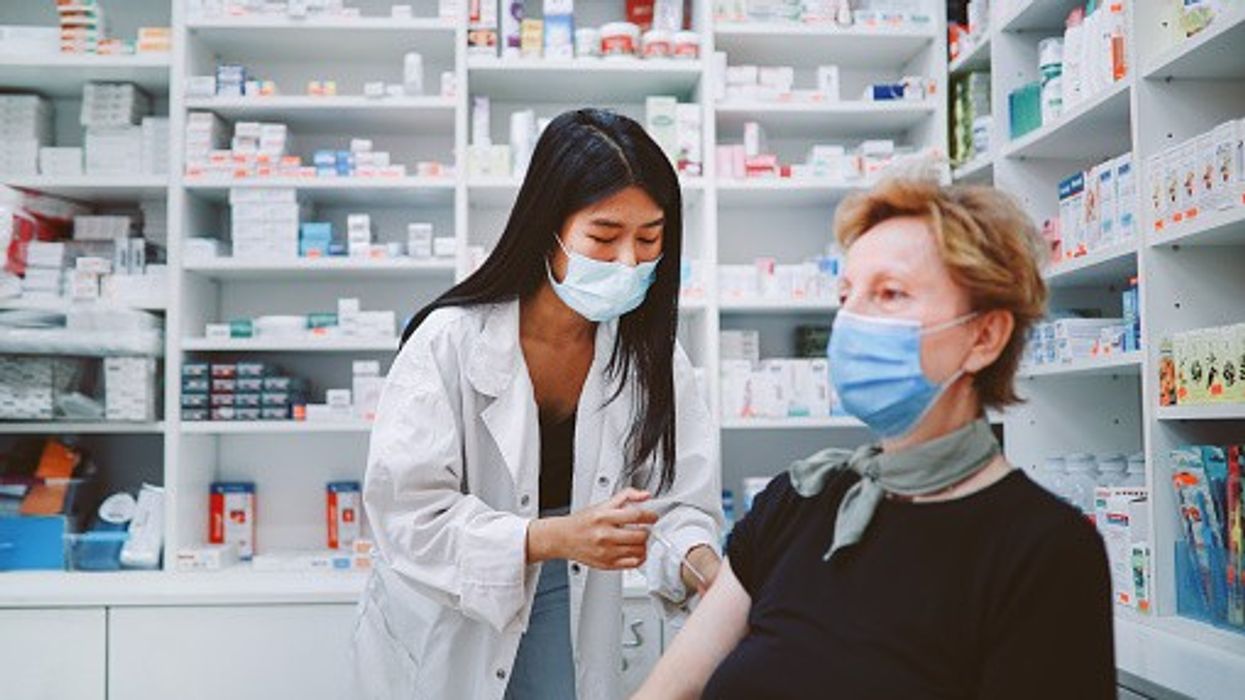Despite their crucial role during the pandemic, community pharmacy was often an afterthought in government planning, guidance and communications - RPS tells COVID-19 Inquiry
The Royal Pharmaceutical Society (RPS) presented key evidence to the UK COVID-19 Inquiry on 10 September, underscoring the vital role of pharmacists and pharmacy teams during the pandemic.
Deirdre Domingo, legal representative for the RPS, delivered the statement during the Module 3 public hearings, which focus on the impact of COVID-19 on healthcare systems across the UK.
As the professional body representing pharmacists and pharmaceutical scientists in Great Britain, the RPS urged the Inquiry to consider several critical issues:
Recognition of pharmacists as key workers
The RPS highlighted the crucial role pharmacy teams played in ensuring continued access to essential medicines and their integral involvement in the roll-out of COVID-19 and flu vaccinations.
However, the Society also raised concerns over significant failures and challenges, such as inadequate safety measures to protect pharmacists at work, confusing national guidance, increased hostility towards healthcare professionals, and a disparity in the treatment of community pharmacy compared to NHS staff.
“Despite their crucial role providing care throughout the pandemic, the pharmacy profession, and particularly community pharmacy, was often an afterthought in government planning, guidance and communications, and this had a hugely detrimental impact on their morale and wellbeing,” the RPS statement reads.
Pharmacy service resilience in future health emergency
The RPS highlighted how pharmacy teams went above and beyond to support patient care during the pandemic.
But it also warned of growing pressures on community pharmacies, which are leading to closures and reduced access to care, especially in deprived and rural areas.
“The pharmacy workforce is currently in a perilous state,” the RPS noting that there’s “an increase in vacancies and staff shortages across the sector.”
Impact of medicine shortages on patient care
The pandemic exposed the complexity of the global medicines supply chain, causing shortages of many commonly used drugs, such as paracetamol, as well as those used in critical care.
The RPS stressed that it has become increasingly common to see medicines shortages within “fragile” supply chains.
Investment in and resilience of aseptic pharmacy services
Another key issue that the RPS is seeking the Inquiry to consider is “whether there is adequate investment and resilience in aseptic pharmacy services” in the event of a future pandemic.
The Inquiry was urged to assess the resilience of medication supply and pharmacy services across all care settings, particularly the current investment and planning in the medicines supply chain and production facilities.
The welfare of pharmacy teams
The Society highlighted the importance of equitable access to health and wellbeing support for all health professionals providing NHS services across care settings.
This includes Infection, Prevention and Control (IPC) guidance, and the provision of personal protective equipment (PPE).
The RPS also emphasised the importance of early engagement with pharmacy stakeholders in the event of future pandemics, particularly concerning medicines delivery services and roll-out of a mass vaccination programmes.
The RPS urged the Inquiry to recognise the critical role of pharmacists across all sectors in responding to the pandemic and to address the significant challenges they faced to improve future preparedness and resilience in the health system.
RPS President Claire Anderson stressed the importance of reflecting on past challenges to build a more resilient NHS for the future.
“Pharmacists and pharmacy teams across the whole of the health service played a crucial role during COVID-19, supporting patient access to care and maintaining vital access to medicines.
“Our evidence has reflected how pharmacy teams went above and beyond in the face of unprecedented demand and the most challenging of circumstances.
“I hope our members’ experiences that we have shared will continue to help shape and inform the Inquiry’s conclusions.
“With continued pressures on the health service and the whole of the workforce, it is more important than ever to learn from the past so we can build a more resilient NHS and help prepare for the future.”













